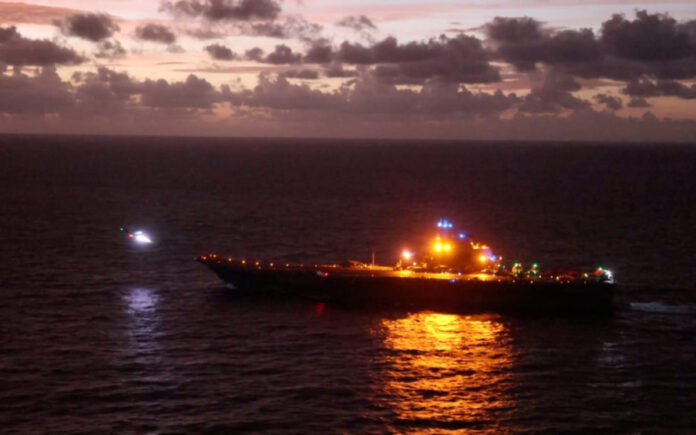Taipei: Taiwan’s Defence Minister Wellington Koo stated on Wednesday that any genuine Chinese blockade of the island would constitute an act of war, with significant repercussions for international trade. This remark follows recent military drills by China that simulated such a blockade scenario.
China, which claims Taiwan as part of its territory, has engaged in nearly daily military activities around the island over the past five years, including war games focused on blockades and port assaults. Taiwan’s government firmly rejects Beijing’s sovereignty claims.
During last week’s exercises, China simulated the blockade of crucial ports and other strategic areas, alongside assaults on maritime and ground targets, according to Beijing. Koo explained to reporters at parliament that while the “Joint Sword-2024B” exercises defined a specific area, they did not establish any no-fly or no-sail zones.
“If you really want to carry out a so-called blockade, which according to international law is to prohibit all aircraft and ships entering the area, then according to United Nations resolutions, it is regarded as a form of war,” Koo emphasized. He highlighted the critical distinction between military drills and an actual blockade, noting the far-reaching impacts such a blockade would have on the international community.
With data indicating that one-fifth of global freight passes through the Taiwan Strait, Koo warned that the international community could not afford to remain passive in the event of a blockade.
While these military drills are typically short-lived, China’s military activities persist. Beijing has never renounced the use of force to assert control over Taiwan.
Carrier in the Strait
Earlier on Wednesday, Taiwan’s defence ministry reported that a Chinese aircraft carrier group, led by the Liaoning—the oldest of China’s three aircraft carriers—navigated through the Taiwan Strait, moving northward after passing near Taiwan-controlled Pratas islands. The ministry confirmed that the fleet was monitored as it was spotted on Tuesday night.
Koo noted that the Liaoning was operating on the western side of the strait’s median line, an unofficial boundary that China does not recognize. The Liaoning participated in the recent Chinese war games near Taiwan, launching aircraft from its deck during those exercises.
Also Read | As Tropical Storm Trami Approaches, Schools Closed and Government Work Halted in the Philippines
Japan reported last month that the Liaoning had entered its contiguous waters for the first time, a move that raised concerns in Tokyo.
China has previously sailed its carriers through the strategically important strait, including in December, just before Taiwan’s elections. The Chinese government asserts that it holds jurisdiction over the 180 km (110 miles) wide waterway, which is crucial for international trade. Conversely, Taiwan and the United States contest this claim, arguing that the Taiwan Strait is an international waterway.
Also Read | Kim Jong Un Visits Strategic Missile Bases, Labels U.S. Nuclear Capabilities a Threat
The U.S. Navy frequently conducts operations in the strait to uphold freedom of navigation rights, a stance echoed by allied nations such as Canada, Germany, and Britain, all of which have faced backlash from Beijing.
Taiwan is also wary of China’s coast guard actions during recent military exercises and is particularly concerned that Taiwanese civilian vessels may be boarded and inspected as Beijing aims to assert its authority in the strait. In a report to parliament, Taiwan’s coast guard declared that should such actions occur, its ships would respond under the principle of “neither provoking nor backing down,” using “all its strength” to prevent such incursions.



